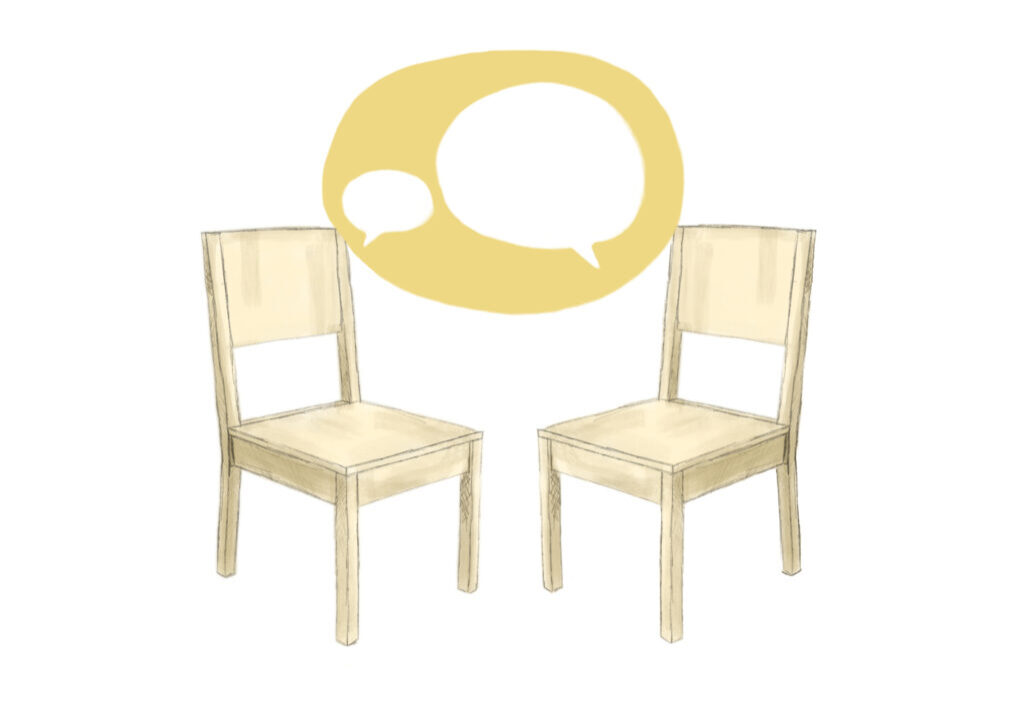Very White-Looking

“I remember having to make a distinct choice of who I was going to hang out with.”
[iframe width=”100%” height=”166″ scrolling=”no” frameborder=”no” allow=”autoplay” src=”https://w.soundcloud.com/player/?url=https%3A//api.soundcloud.com/tracks/1265687482&color=%23ff5500&auto_play=false&hide_related=true&show_comments=false&show_user=true&show_reposts=false&show_teaser=true”]
Edited by Nick Ladeau
Transcript for Very White-Looking
So my dad’s from Mexico, and my mom’s from Wisconsin, so I’m really Mexican-American. And he decided that we live in America, we’re going to speak English. It was that kind of mentality. He also comes from a huge family. And he’s the only one who married an American. They all married someone from back home, even if they came here first, they got their wife back in Mexico, little town. Almost arranged marriages, kind of. Very, like, let me put it this way, he didn’t have electricity until he was like 16. So there’s that. And I don’t look Mexican at all, I definitely look like my mom – very, very white-looking. And it’s always been a struggle, because my last name is very prominently Mexican. It’s been really difficult trying to toe the line of being both, and not.
When I was in middle school, we had moved, and I was going to middle school with cousins on my dad’s side, so my Mexican cousins who definitely looked it. And I definitely had my, you know, kind of air-quoted “white friends.” I was in accelerated classes, I was doing theater, I was doing band, I was doing all these things that, you know, the kids in my school who were Mexican didn’t do. And so when I was introduced to my cousin’s friends, they wouldn’t believe me that I was their cousin. And I remember having to make a distinct choice of who I was going to hang out with. Would I hang out with my white friends who had the same interests as me, and who wanted the same goals that I did, including college, or was I going to hang out with my cousins, who slacked off in school and didn’t put the effort in and didn’t really have a very good attitude about school or about anything besides themselves. I made my white friends.
I stayed with that, and, when I got to high school, I was supposed to go right into accelerated classes my freshman year. And what had happened was, I got my list of classes during the summer, and none of them were accelerated, or like one of them was – I can’t remember. Called my school counselor. And it’s like, “what’s the matter with this,” and there had been a mistake. I had had cousins go before me with the same last name, who had dropped out who had not done well, who had barely squeaked by. And so the mistake was that they assumed with me. From that point on, I kind of tried to hide the fact that I was half Mexican, or not necessarily hide, just not really discuss it, not really having it a part of the conversation or part of who I was. I didn’t want it to be part of who I was. It has played a lot more since I’ve come to college, actually.
Working in the Multicultural Office has helped me really take a look at what identity means and for myself, and something that I have started to embrace is the fact that I am multicultural. I don’t have one facet to my cultural identity, just like my identity in general. It’s very dual-natured, having the Mexican aspect and the American aspects and really understanding that I can try to keep that Mexican heritage and understand what that means in terms of the struggles that my dad has faced being an immigrant. The man worked three jobs at one point, like – but also understanding that he came here for a purpose, to make a better life for his children, which he has done. He came from nothing, and I’m going to college and then off to a master’s program.
Hold a Conversation
Can you imagine leading a conversation about this story? Where? With whom? What kinds of questions would you pose? (See How to use the questions for reflection for one approach.) Please email your questions to us or post them in the comment box for our consideration. If you use them in an actual discussion, let us know how the conversation went.
